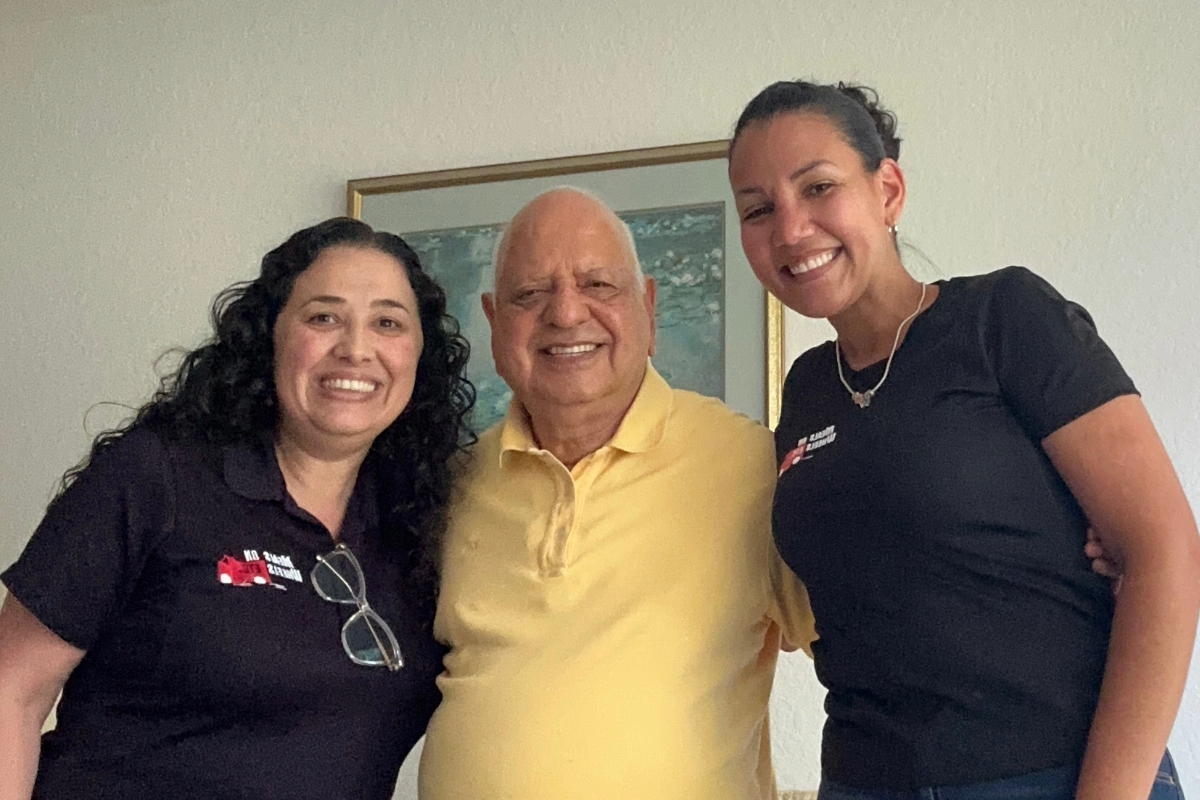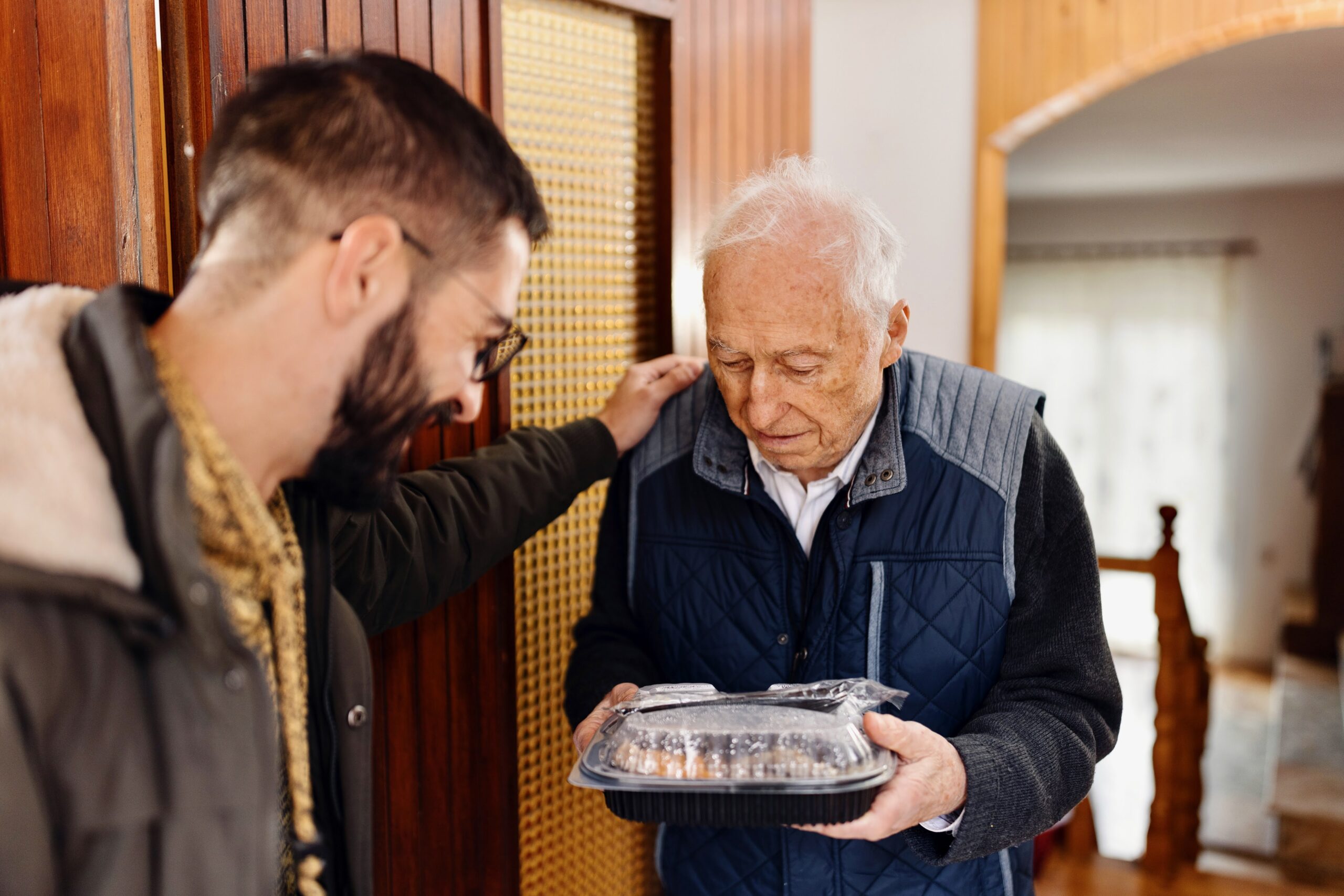
When Help Takes Too Long: Linda’s Story of Survival
Across Texas, seniors waiting for meals face long delays and dwindling hope as funding fails to keep up with need. Linda’s story shows what that wait looks like — skipped ...
Read This Story
After returning home from Afghanistan, Rodney faced a new battle — hunger and isolation. Like many veterans waiting for meals, he spent months on a waitlist before finally receiving the nutrition and connection that changed his life. His story reflects the urgent need to ensure no veteran has to wait for help.

Across the United States, thousands of veterans who once served our nation now face a different kind of battle — one against hunger, loneliness, and uncertainty. Meals on Wheels programs across the country see this struggle every day: volunteers ready to deliver, routes mapped out, but funding too limited to reach everyone in need.
For veterans waiting for meals, the consequences can be devastating. These men and women are often living with disabilities, trauma, or chronic health conditions that make preparing food difficult or unsafe. Each day spent on a waitlist is another day without proper nutrition, care, or human connection — essentials that no veteran should have to wait for.
Rodney’s story from North Carolina shines a light on this growing crisis. His determination, patience, and eventual relief reveal both the resilience of veterans and the urgency of ensuring they receive the support they’ve earned.
When Rodney returned home from Afghanistan, he entered a new kind of battle — this time with PTSD, depression and epilepsy. Homebound and unable to work, he often had to choose between paying bills and buying food.
After suffering for years and with nowhere else to turn, Rodney contacted Meals on Wheels of the Sandhills in West End, North Carolina. But like many older adults across the country, he was placed on a waitlist with no clear timeline for help.
For six months, Rodney called the office every two weeks, his worry growing as he struggled to buy groceries on a small government stipend. Most nights, he went to bed hungry.
According to Penny Jeffrey from Meals on Wheels of the Sandhills, one major barrier to serving seniors like Rodney is a lack of funding. While volunteers are ready and willing to hit the road with meals, insufficient funds limit the organization’s ability to buy more food so it can reach more seniors.
This scenario is all too common — federal funding and private donations aren’t keeping pace as food, fuel, labor and utility costs rise and America’s senior population grows. Nationwide, Meals on Wheels providers are struggling in the face of rising costs and demand.
“If we had the funds,” Penny said, “we could easily create the routes.”
Thankfully, funding through Project DASH opened a delivery slot for Rodney. Now, he receives a healthy lunch and a friendly check-in every weekday. The provider also delivers pet food, keeping his beloved dog from going hungry.
Rodney said his mental health has improved since receiving meals. The daily visits from volunteers have helped him feel less alone and eased his depression.
But many more seniors are still waiting — for meals, for connection and for the comfort of knowing someone cares.
When Rodney finally began receiving Meals on Wheels deliveries, it marked the end of his hunger but also the return of something greater — hope. The friendly visits, the warm meals, and the steady presence of volunteers reminded him that he wasn’t forgotten. But for too many veterans waiting for meals, that moment of relief never comes soon enough.
Across the Meals on Wheels network, providers know what’s needed: consistent, sustainable funding to keep pace with demand. Each dollar invested means fewer veterans going hungry, fewer caregivers stretched thin, and more lives stabilized through daily nutrition and compassion.
By standing together — advocates, lawmakers, and community members — we can honor veterans not just in words, but in action. It’s time to End the Wait for those who have already given so much.

Across Texas, seniors waiting for meals face long delays and dwindling hope as funding fails to keep up with need. Linda’s story shows what that wait looks like — skipped ...
Read This Story

In Florida, seniors waiting for meals face growing waitlists, hunger, and isolation. Satish’s story shows the real cost of delay — years spent hungry and alone while fundi...
Read This Story

Bring cheer to your table with senior-friendly holiday recipes. Discover nutritious twists on classic favorites, plus tips for making meals easier to prepare and enjoy.
Read This Story

The holidays should be a time of warmth and togetherness, but for many older adults, they bring long Silent Nights filled with isolation. From rising costs to growing waitlist...
Read This Story

Across the country, too many older adults are spending their nights hungry and alone, waiting for meals and care. This holiday season, help us end the silent nights of hunger for older adults. Your gift today helps the Meals on Wheels network deliver meals, care and comfort to seniors who can't afford to wait.